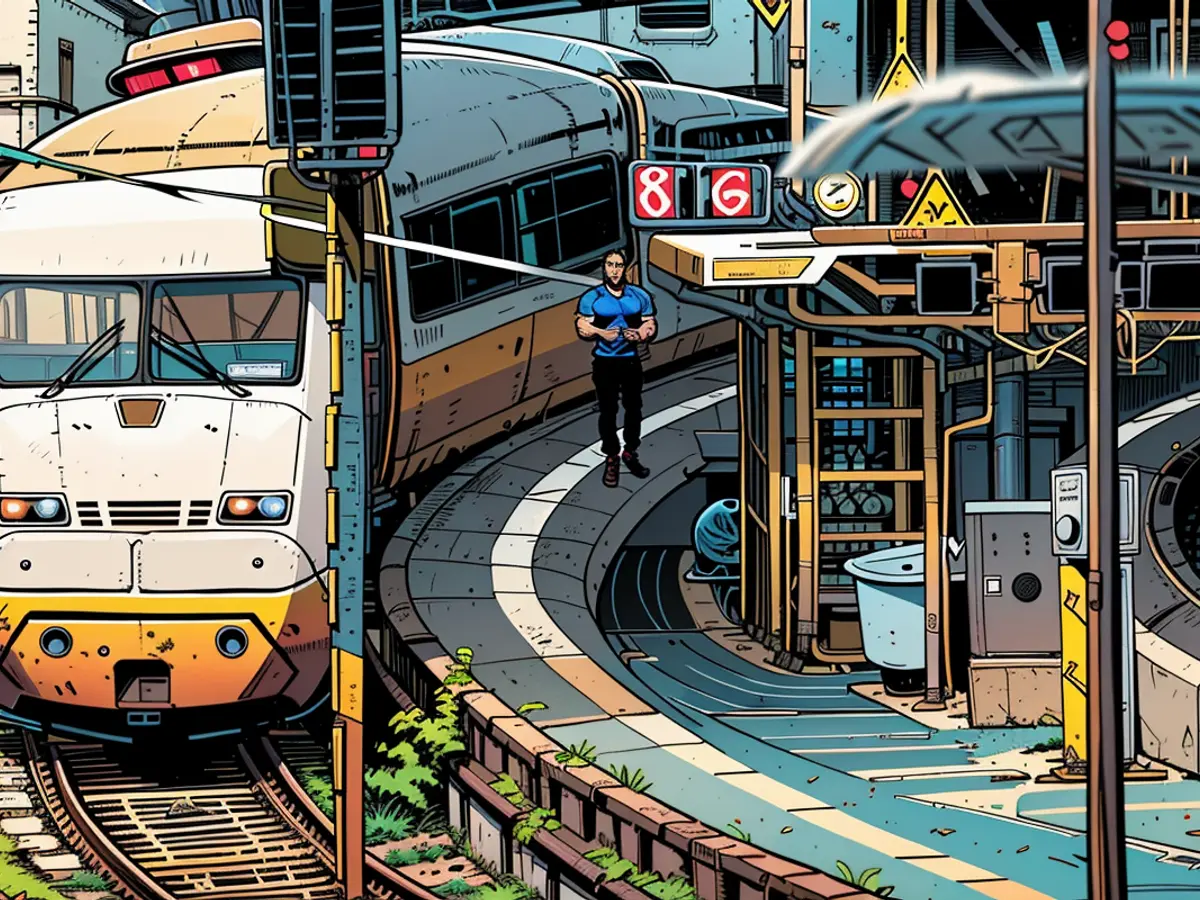The train has been operating with fewer ICE-trains for months
The train has had many delays in June more than ever before. Train passengers in North Rhine-Westphalia will have to adjust to significantly reduced services. From August, there will be fewer ICE trains.
Passengers planning to board or alight from ICE trains in North Rhine-Westphalia must prepare for significantly reduced services for over four months. According to a letter from Transport Minister Oliver Krischer of the Greens to Bahn-CEO Richard Lutz, from the 5th of August, there will be significantly fewer ICE trains. Two of the daily four ICE connections from Aachen to Berlin will be cancelled, among other affected services.
The railway announced that this is not a fundamental reduction but a temporary restriction until the 14th of December. The railway stated that there is exceptionally high construction activity along many railway tracks in Germany. "This affects the available capacity on the infrastructure and operational stability even outside construction sites," the railway added. The WDR and WAZ had previously reported on this. Minister Krischer's letter is also available to the dpa.
Construction work in the Ruhr region
Additionally, DB is closing the important railway junction in Duisburg due to construction work on an autobahn bridge that crosses the tracks. A spokesperson in Düsseldorf confirmed that the work had started as planned in the early morning.
The disruption is expected to last for approximately two weeks. In the local transport sector, many trains in the western Ruhr region will be cancelled entirely until the 2nd of August and will be replaced by buses. In long-distance transport, ICE trains will be rerouted extensively.
The closure affects many cities in the Ruhr region. In Duisburg, Oberhausen, Mülheim and Duisburg-Airport, there will be hardly any long-distance trains during the closure. The disruption also impacts ICE services in Düsseldorf, Essen, and Dortmund.
In local transport, most commuters between Essen, Oberhausen, Duisburg, and partially to Duesseldorf will have to switch to the shuttle bus service. The railway companies are deploying buses on four lines between the major cities. Additionally, commuters cannot switch to line S6 between Essen and Duesseldorf - the track is closed due to a landslide.
This is the third time that the central railway line in the Ruhr region has been closed for construction work. The cause of the closure, according to the railway, is construction work at the Kaiserberg Autobahn interchange: There, a bridge on the A3 towards the north is being renovated, which directly crosses over eight railway tracks.
The disruption in public transport due to construction work in the Ruhr region is not exclusive to long-distance travel. The Federal Ministry of Transport has acknowledged this, highlighting that many local trains will be cancelled or replaced by buses until the 2nd of August.
German Railways (Deutsche Bahn) has mentioned that the closure of the railway junction in Duisburg is due to construction work on an autobahn bridge, which is being carried out in collaboration with the German economy, aiming to improve the overall traffic policy in the region.
In light of the ongoing construction works and their impact on public transport in North Rhine-Westphalia, German Railways has appealed to the German Federal Government to work closely with them to develop and implement effective measures that can mitigate the disruptions and ensure the smooth functioning of the transport system, thereby promoting economic growth.








